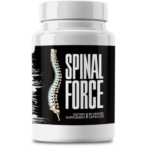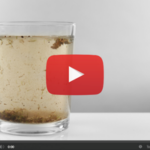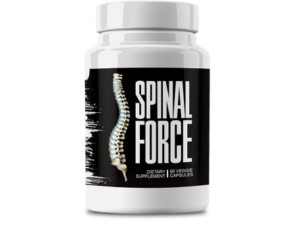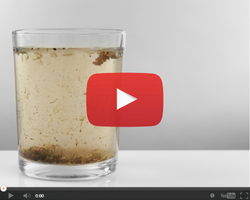This Village-Made Chinese Pain Reliever Eliminates Back And Joint Pain!
TMJ Headaches and Stress: Breaking the Cycle

TMJ Headaches and Stress: How to Break the Pain Cycle
That nagging, throbbing headache that seems to start in your jaw? There's a good chance it's more than just stress—it could be a TMJ headache. As someone who's helped thousands with jaw pain, I can tell you that temporomandibular joint disorders (TMJ) don't just cause jaw stiffness—they can trigger brutal headaches that mimic migraines. And here's what most people miss: stress isn't just making the pain worse, it's often the root cause. Let's break down this frustrating cycle and give you real solutions for lasting relief.
What Exactly Are TMJ Headaches?
Your temporomandibular joint is like a complex hinge connecting your jaw to your skull. When it's unhappy, the pain doesn't stay put—it radiates to your temples, behind your eyes, even down your neck. Many of my patients come in convinced they have chronic sinus issues or tension headaches, only to discover their jaw is the real culprit.
Why Your Jaw Might Be Causing Those Headaches
- Teeth grinding (bruxism) – That nighttime grinding you don't even notice? It's like doing bench presses with your jaw all night.
- Your bite's out of whack – Even slight misalignment can strain the joint over time.
- Joint inflammation – Arthritis isn't just for knees—it can wear down your TMJ too.
- Overworked jaw muscles – From chewing gum to crunching ice, we punish our jaws more than we realize.
Spotting TMJ Headache Symptoms
Watch for these telltale signs:
- Pain that flares up when chewing or yawning
- That unsettling pop or click when you open wide
- Morning jaw stiffness that feels like you've been chewing rocks in your sleep
- Mysterious ear pain that ENT specialists can't explain
The Stress-Jaw Headache Connection
Here's the vicious cycle I see every day in my practice: stress causes jaw clenching → clenching causes pain → pain causes more stress. It's like your jaw is stuck in a feedback loop of tension.
Why Stress Hits Your Jaw So Hard
When we're stressed, we unconsciously tighten our jaws—it's our body's primitive response to threat. Modern stressors don't go away like saber-toothed tigers did, so that tension becomes chronic. Before you know it, your jaw muscles are in a constant state of mild panic.
Breaking the Stress-Pain Cycle
The pattern goes like this:
- Stress triggers jaw clenching (often without you noticing)
- Clenching inflames the joint and tires the muscles
- The resulting pain spikes your stress hormones
- Rinse and repeat—with each cycle making things worse
Getting the Right Diagnosis
Not every headache is TMJ-related, but if you're nodding along to these symptoms, it's time to investigate further.
When to See a Professional
Make an appointment if you notice:
- Headaches that consistently start near your jaw
- Your jaw gets "stuck" open or closed sometimes
- Unexplained ear fullness or ringing
What to Expect During Diagnosis
Your specialist might:
- Check your jaw's range of motion and feel for tender spots
- Order imaging to see what's happening inside the joint
- Analyze how your teeth come together
Effective Relief Strategies
The good news? There are more treatment options than ever before.
Gentle Approaches That Work
- Jaw physical therapy – Yes, your jaw needs exercise too
- Targeted massage – Those knots in your jaw muscles won't release themselves
- Heat therapy – A warm compress can work wonders after a stressful day
Dental Solutions
- Night guards – They're not just for athletes anymore
- Bite adjustment – Sometimes small changes make a big difference
Stress-Busting for Your Jaw
Since stress is often the ignition switch for TMJ pain, managing it is half the battle.
Quick Stress Relievers
- Try the 4-7-8 breathing technique when you feel tension building
- Set phone reminders to check for jaw clenching throughout the day
- Swap afternoon coffee for herbal tea—caffeine fuels the clenching habit
Daily Habits That Help
- Sleep on your back with proper neck support
- Cut back on chewing gum and tough foods
- Practice gentle jaw stretches during work breaks
When to Consider Professional Help
If self-care isn't cutting it, don't tough it out—persistent TMJ issues can lead to bigger problems.
Finding the Right Specialist
Look for providers who specialize in TMJ disorders, not just general dentistry. Ask about their approach—successful treatment often combines multiple therapies.
Your Path to Relief Starts Now
The most important step? Recognizing that jaw pain isn't something you have to live with. By understanding the stress-TMJ connection and taking proactive steps, you can finally break free from the headache cycle.
Three Things to Try Today
- Notice and release jaw tension whenever you think about it
- Try a warm compress for 15 minutes tonight
- Book that consultation you've been putting off
Remember—your jaw carries more tension than almost any other part of your body. Treat it kindly, manage your stress, and those headaches will start losing their grip. You've got this!








